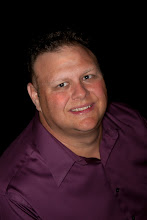“He [George III] has combined with others to subject us to a jurisdiction foreign to our constitution ….”
But after writing the book I started to ponder:
“What constitution is Mr. Jefferson referring to?”
The Constitution of the United States was still a decade away. So he could not have been referring to it.
Mr. Jefferson used the singular “Constitution” rather than the plural “Constitutions,” which implies that it covered all the colonies and bound George III. So he could not have been referring to any constitutions that the individual colonies had since any one would not have covered all thirteen and George III would not have been bound by them.
“Maybe he was referring to the Colonial Charters?” I thought, “George III would have been bound by them.”
While that is true, each charter applied to only a few colonies so, again, the singular “constitution” would not be applicable. Furthermore, Mr. Jefferson specifically uses the term “charters” when referring to those documents.
So what Constitution is Mr. Jefferson referring to?
By looking beyond 1776, beyond the Atlantic, I now understand that the constitution Mr. Jefferson was referring to was the English Constitution that ensured the rights that “all Englishmen are naturally entitled to.”
Most Americans do not realize that there was an English constitution. This is probably because it, unlike its American off-spring, was not a written formal document. It was more like English Common Law that evolved through precedence; a living constitution that was constantly being changed by new charters, parliamentary action, and royal prerogative.
Unfortunately, in modern Britain the constitution has evolved itself into extinction but in the mid-1700s is was still a very vital and revered element of English politics. It, more than anything else, defined what an Englishman was since it distinguished the free-born Englander from his servitude-born continental neighbor. As the lyrics in Rule Britannia goes:
When Britain first, at Heaven's command
Arose from out the azure main;
This was the charter of the land,
And guardian angels sang this strain:
"Rule, Britannia! rule the waves:
"Britons never will be slaves."
The nations, not so blest as thee,
Must, in their turns, to tyrants fall;
While thou shalt flourish great and free,
The dread and envy of them all.
"Rule, Britannia! rule the waves:
"Britons never will be slaves.
The charter the first verse refers to was the constitution that created the environment of liberty that would produce the Jeffersons, the Wahsingtons, the Adamses, and, yes, the Hancocks that made the founding of this nation possible. It was the rights it guaranteed that the Patriots were fighting for from the first battles of Lexington and Concord until July 4th, 1776. It also became the basis of the principle political philosophy this nation was established on.
I am sharing this because I know that many of you are exploring and studying the founding of this great nation. For some, it is a return to a familiar but neglected subject. For others, it is the first real attempt at understanding the founding of this nation. So, whether you are increasing your knowledge or just starting out, I urge you to look beyond 1776 and beyond the Atlantic. You may find an understanding that you never realized existed.
John Hancock is a historian specializing in the History of the English-speaking peoples. His new book Liberty Inherited: The Untold Story of America’s Exceptionalism is due out next month. Click below if you would like details on how you can get a personalized signed copy for just $13.50 (+S&H). A saving of 20% off its cover price.
Click below for more details:
http://www.libertyinherited.com.






